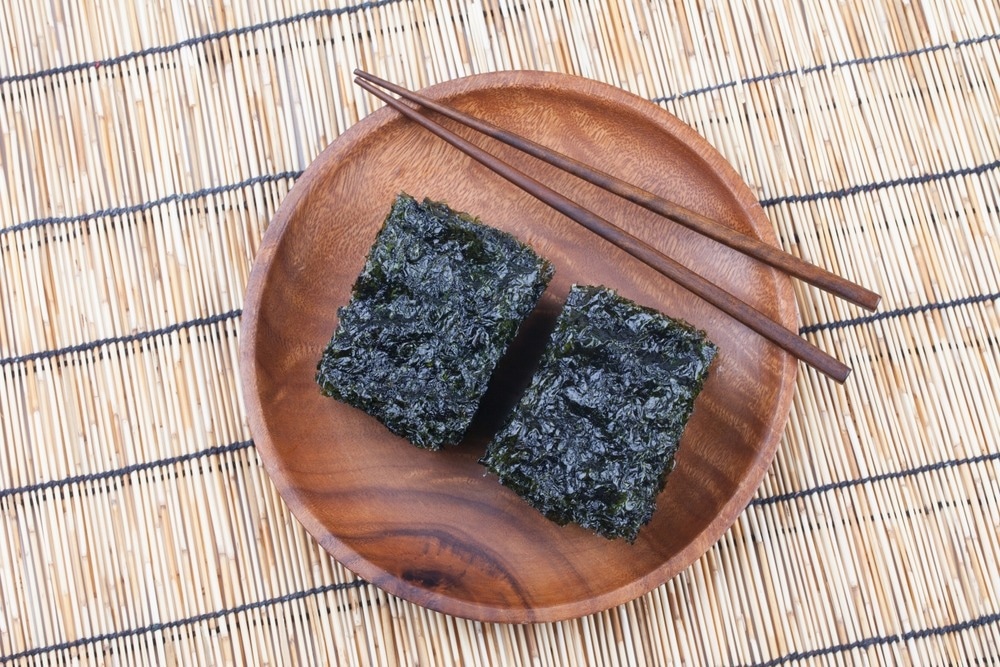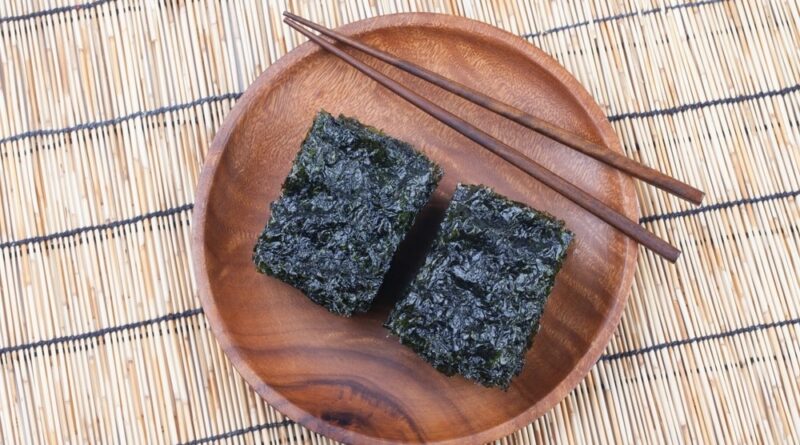Can nori be a reliable source of vitamin B12 for vegetarians?
A study found that eating 5 g of nori per day for 4 weeks significantly improved vitamin B12 levels in vegetarians.

Vitamin B12 is an important nutrient found in eggs and dairy products, including cheese and yogurt, fermented tofu, kimchi and mushrooms, among other plant foods. Many plant-based milks are also fortified with B12.
Vegetarian diets may be deficient in this vitamin. A recent report on European Journal of Nutrition examined how dietary nori (from purple laver) can improve B12 levels in vegetarians.
Vegetarian diets and B12 deficiency
Meat only contributes 25% of the greenhouse gases (GHG) produced by meat-based diets. However, plant-based foods must be modified to ensure they contain all the necessary nutrients, including B12. In a recent Taiwanese study, vitamin B12 deficiency was present in 26% of vegetarians versus 1% of omnivores.
Sea vegetables and B12
Edible plants from the sea, including algae, form part of the East Asian diet. They contain B12 but also inactive analogues that competitively block B12 absorption.
Purple laver is a sea vegetable (family Neopyropia). It can provide the recommended dietary allowance (RDA) of 2.4 µg. However, Western nutritionists do not support seaweed, including nori, as a source of B12.
In Taiwan, fried nori is widely used. Its bioavailability of vitamin B12 has not been measured in a well-designed controlled trial (RCT), leading to the present study.
The aim was to evaluate whether nori is a bioavailable source of B12 and whether its consumption can sufficiently improve the levels of B12 in the RDA in vegetarians.
About education
The researchers designed an open-label RCT. Participants were between the ages of 20 and 60, had been vegetarian for at least a year, and had not taken supplements containing B12, folate, or fortified yeast. Other confounding factors were also excluded.
Those who were already consuming eggs, milk, or fortified plant milk were specifically instructed to continue the same diet, as the B12 dose would be adjusted to basically.
The participants were assigned to one of three groups: controls (no nori), low dose (5 g nori or 2.4 μg vitamin B12 per day), and high dose (8 g nori, or 4 μg vitamin B12 per day Recommended values in the USA and Taiwan’s adequate intake (AI) recommended by the European Food Safety Authority (EFSA), respectively.
The intervention was carried out for four weeks. However, due to the low content of B12 in the nori used during the trial, the intake values were adjusted to 1.9 µg and 3.1 µg for 5 g and 8 g of nori, respectively.
A panel of serum B12 markers was used to overcome the limitations of a single marker. These included serum vitamin B12, holotranscobalamin (holoTC), homocysteine (Hcy), and methylmalonic acid (MMA), and a composite score, the 4cB12 score.
Dietary B12 content was measured at baseline and after four weeks using standard dietary questionnaires. Baseline measures were used to arrive at least square means (LSM) of changes in B12 levels across the study period.
Nori improves B12 levels
During the study, B12 intake increased from an average of 0.3 µg/day to 2.0 µg/day and from 0.5 µg/day to 3.5 µg/day in groups with low levels and higher, respectively. Overall, the contribution of nori was 1.9 µg and 3.1 µg, respectively.
In both groups of nori, all biomarkers of vitamin B12 improved, indicating a steady reduction in the prevalence of B12 deficiency in the study, in contrast to different changes in the control biomarkers.
Nori consumption increased serum B12, holoTC, Hcy, and 4cB12 levels. Serum MMA levels remained constant across the three groups but improved in the low-dose group.
In the low dose group, the B12 level increased to a stable level compared to the control. LSM was +59 pmol/L, while holoTC increased by 28.2 pmol/L and Hcy decreased by 3.7 µmol/L. 4cB12 score increased by 0.67.
Similar changes without a dose-dependent increase occurred in the high-dose group of B12, Hcy, and 4cB12. No significant changes were observed in serum folate levels in either group.
The lack of a dose-response effect may be due to the saturation of intrinsic factor (IF), which is responsible for the absorption of B12. Variations in B12 content per pack of nori may also contribute, as they ranged from 23.1 to 52.8 µg/100 g of nori in year-round samples. However, all major types of nori contained at least 50% of the B12 RDA, indicating that this is a reliable source of B12.
It is clear that Nori produces B12, whereas fermented products or composted vegetables obtain B12 from microorganisms that will produce B12 or unintended contamination.
Conflicting findings in other studies may be due to the inclusion of other B12-analog sea vegetables and algae. Errors in the dietary questionnaire, confounding different types of sea vegetables, may have contributed. Different working methods and fatigue of consuming more than 8 g nori per day (the maximum of this study) are other sources of error.
The end
Consumption of 5 g nori per day for four weeks was associated with a significant improvement in serum vitamin B12 levels, with no further increase seen at higher doses. These findings indicate that nori contains bioavailable B12 and not an inhibitory analog of B12. Other seaweeds, such as Wolffia globosa duckweed and Taiwan laver, should be tried individually.
The increase in B12 is comparable to that achieved by adding milk, whey powder, or toothpaste containing B12 fortifications or oral B12 supplements to a vegetarian or vegan diet. However, the only previous study showing normal levels of B12 in vegetarians is the Adventist Health Study-2, due to their consumption of fortified foods and supplements.
Multiple intake of Nori combined with food containing B12 can improve the absorption of B12 and avoid consumption fatigue.
#nori #reliable #source #vitamin #B12 #vegetarians
